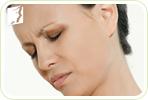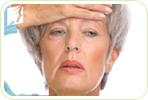Incontinence is a cringe-worthy word—one that leaves many women wondering what else menopause, or even aging, has to offer. Arguably, this is one of the most embarrassing of all menopausal symptoms. But how do you prevent it?

As hormones decrease, you can develop three types of incontinence: stress, urge, and overflow. All have the same outcome, and they're all distressing problems. This article will assess how you can take steps to avoid this problem during menopause.
Tips for Preventing Incontinence during Menopause
Keep a Healthy Weight
When you live, eat, and drink right, your body is more prone to keeping proper bladder control. Ingesting the right fatty foods and monitoring your daily calorie intake should help maintain a healthy weight, which will lessen the risk of incontinence.
Do Kegel Exercises

Strengthening your pelvic muscles is perhaps the best way to treat menopausal incontinence, particularly stress incontinence. Kegel exercises involve squeezing the same muscles used to control urination. These pelvic strengthening exercises can be done anywhere, anytime, by any woman, even at your work desk.
Hold each squeeze for three seconds, prior to relaxing for three seconds, and then repeating between 10 and 15 times per session. Three sets of these exercises are recommended every day.
Watch What You Drink

Everybody reacts to things differently, but certain drinks may irritate your bladder more than others. Try to stay away from alcohol and sugary drinks, whilst increasing your daily water intake.
Increase Fiber Intake
Fiber is crucial in aiding healthy digestion; ensuring you get enough in your diet means you won't suffer from constipation and will help prevent incontinence.
Train Your Bladder

By making a bathroom schedule, you can prevent incontinence and lessen the urge to go. Start at hourly intervals and increase the time gradually. This will leave you better equipped to deal with incontinence.
Keep Busy
Don't lock yourself inside, constantly fretting over this issue. Although incontinence can be an embarrassing problem, it can be best deal with through eating right, working right, and exercising right.
More about Incontinence and Menopause
If you are suffering from incontinence during menopause, be sure to have a plan in place on a daily basis. There are many things you can do to help reduce the problem and many other things you should know. Click on the following link for more information about treatments for incontinence.
Sources
- Mayo Clinic.(n.d)."Urinary Incontinence." Retrieved from www.mayoclinic.com
- Sullivan, Dr. Nancy H. (n.d). "Menopause and Incontinence." Retrieved from www.providence.org


